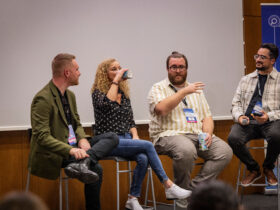Starting in September 2025, primary and middle schools in Beijing will begin teaching artificial intelligence (AI) as part of their regular curriculum. The move is part of a trial program led by the Beijing Education Commission to prepare students for a more digital future.
According to an official document titled Curriculum Outline for Artificial Intelligence Education in Primary and Secondary Schools in Beijing, students will receive a minimum of eight class hours of AI education each academic year. The program may expand in the future, especially for secondary school students.
The new curriculum has three main goals: improving students’ awareness and understanding of AI, encouraging innovative thinking in AI applications, and teaching ethics and social responsibility related to AI use.
Instead of basic IT lessons, the new AI courses aim to develop critical thinking and problem-solving skills. AI will also become part of the overall student assessment process in Beijing schools.
Schools will have the flexibility to teach AI as a separate subject or combine it with others, such as science, information technology, and emerging technologies. This approach allows educators to tailor AI learning based on existing resources and school-specific needs.
Li Yuxin, principal of Beijing Bright Horizon Foreign Language Primary School, said the new guidance could help build a continuous and integrated AI education path from primary to middle school. She believes this will help the education sector take full advantage of AI-driven innovation.
The update aligns with broader national efforts. In May, the Chinese Ministry of Education released rules for AI use in classrooms. Among other things, it banned students from submitting AI-generated work as their own.
Experts say the AI-focused curriculum is a step in the right direction. Its design, tailored for younger students, supports China’s larger goal of building a tech-savvy generation ready for the demands of a rapidly changing world.










Leave a Reply